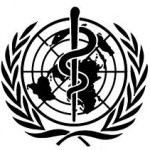 Proposals for a global treaty on funding and coordination of medical research and development will be discussed this week at the 65th World Health Assembly in Geneva. The proposals grow out of the ongoing debate over the failure of the world’s IP system to incentivize research into diseases that primarily affect the world’s poor.
Proposals for a global treaty on funding and coordination of medical research and development will be discussed this week at the 65th World Health Assembly in Geneva. The proposals grow out of the ongoing debate over the failure of the world’s IP system to incentivize research into diseases that primarily affect the world’s poor.
Last month, the Consultative Expert Working Group on R&D Financing and Coordination submitted a report to the body that recommended the negotiation of a “proposed convention [that] aims at providing effective financing and coordination mechanisms to promote R&D. We see a convention not as a replacement for the existing intellectual property rights system, but as a supplementary instrument where the current system does not function.”
For the World Health Assembly, Kenya has submitted a resolution that calls on the World Health Organization to begin work on a “Convention on Research and Development Financing and Coordination taking into account the CEWG recommendations, in particular, the strengthening and securing sustainable funding to address identified R&D priorities of developing countries; promoting R&D in diseases that disproportionately affect developing countries; delinking R&D costs and prices of products; enhancing innovative capacity of developing countries and technology transfer; generating R&D outcomes as public goods and strengthening R&D coordination mechanisms.”
Suerie Moon, Jorge Bermudez, and Ellen ‘t Hoen published a paper in PLoS Medicine, arguing that “effective tools for global governance are required to generate medical R&D as a global public good, based on the understanding that a politically and financially sustainable system will require both fair contributions from all, and fair benefit-sharing for all.” On May 22, there will be a side event at the 65th World Health Assembly co-hosted by MSF and HAI titled “Time for a binding convention on R&D relevant to the health needs of developing countries?” The event will feature representatives from the governments of Kenya and Bangladesh and from the nonprofits HAI and Knowledge Ecology International.




